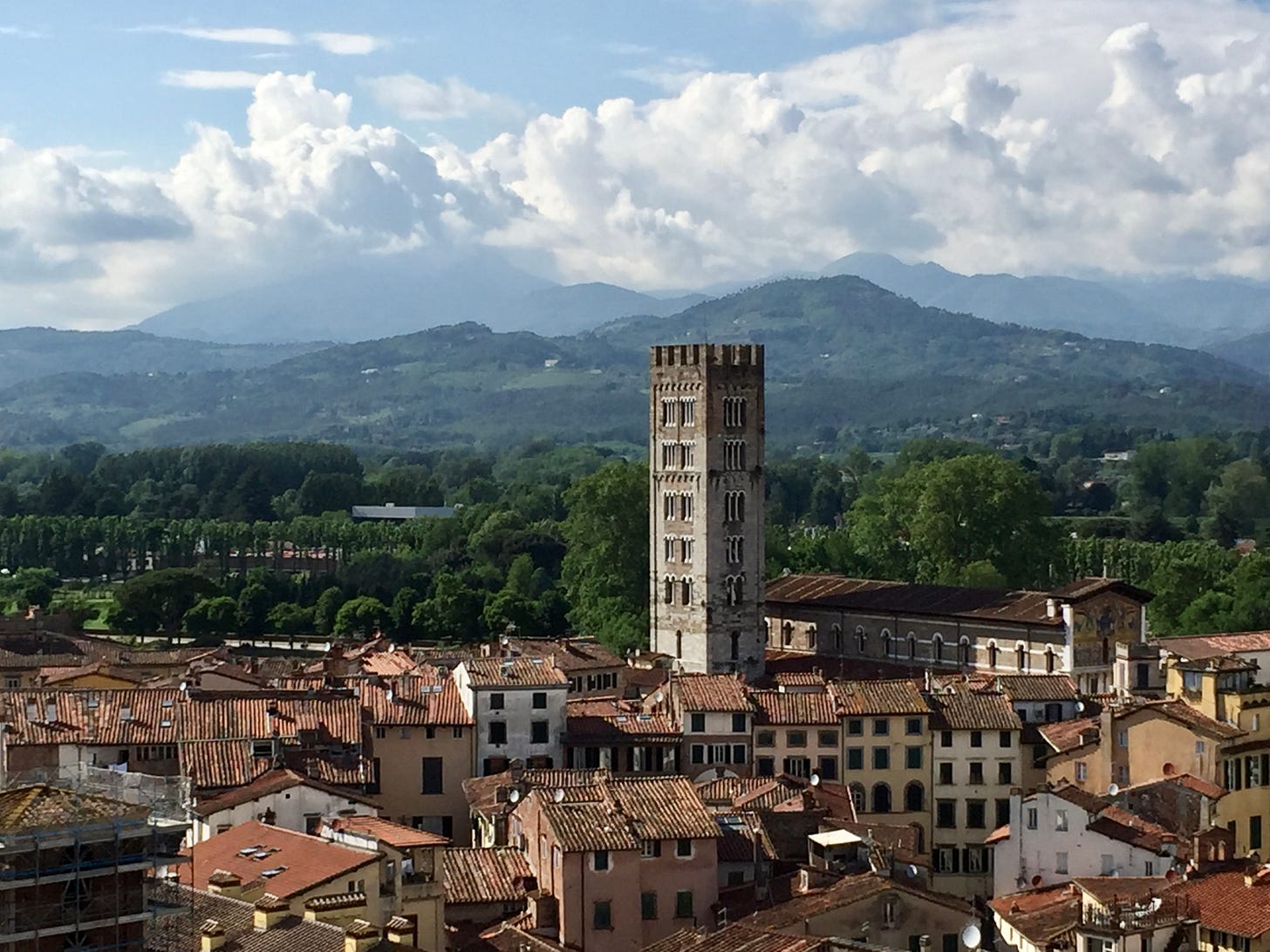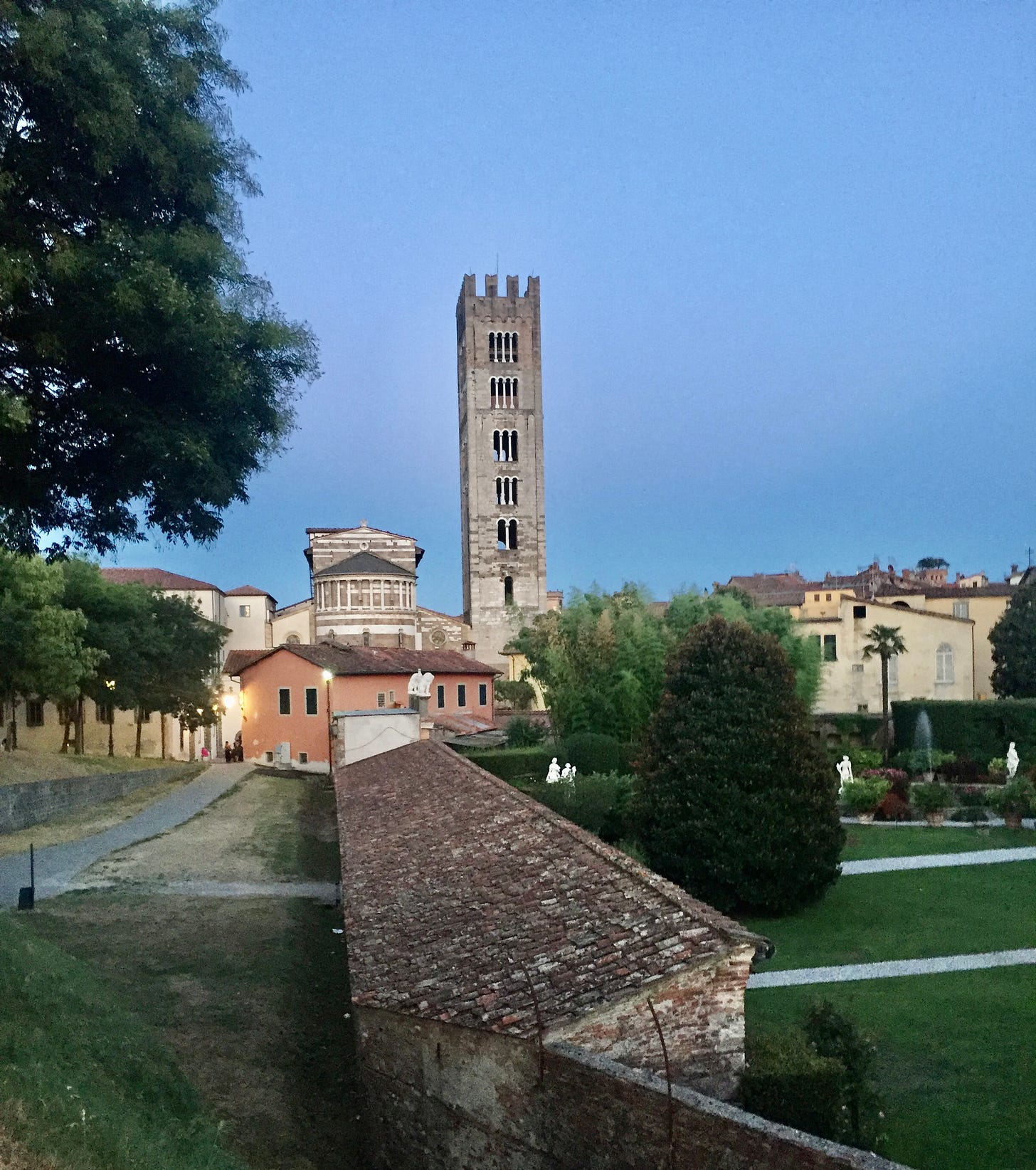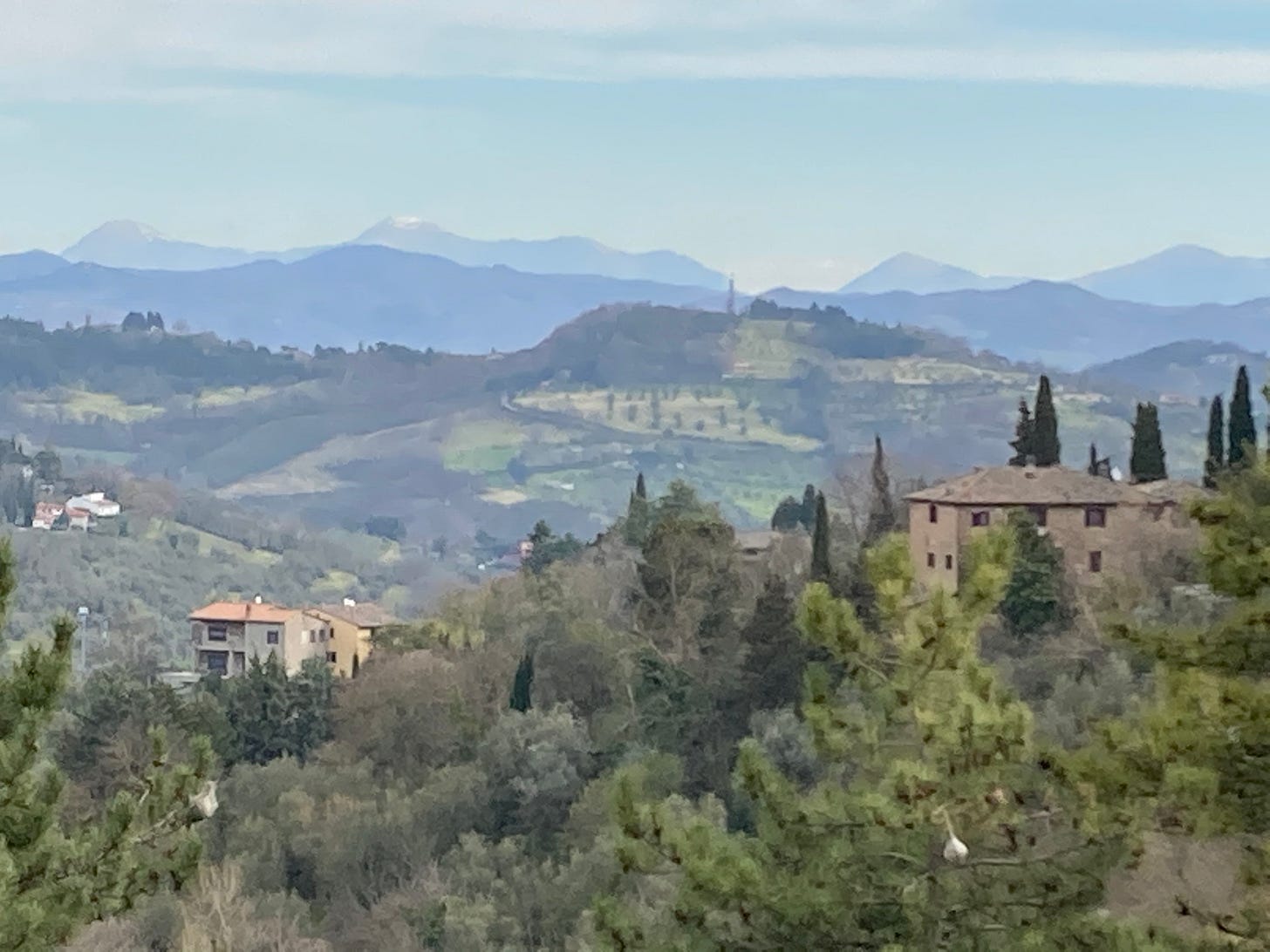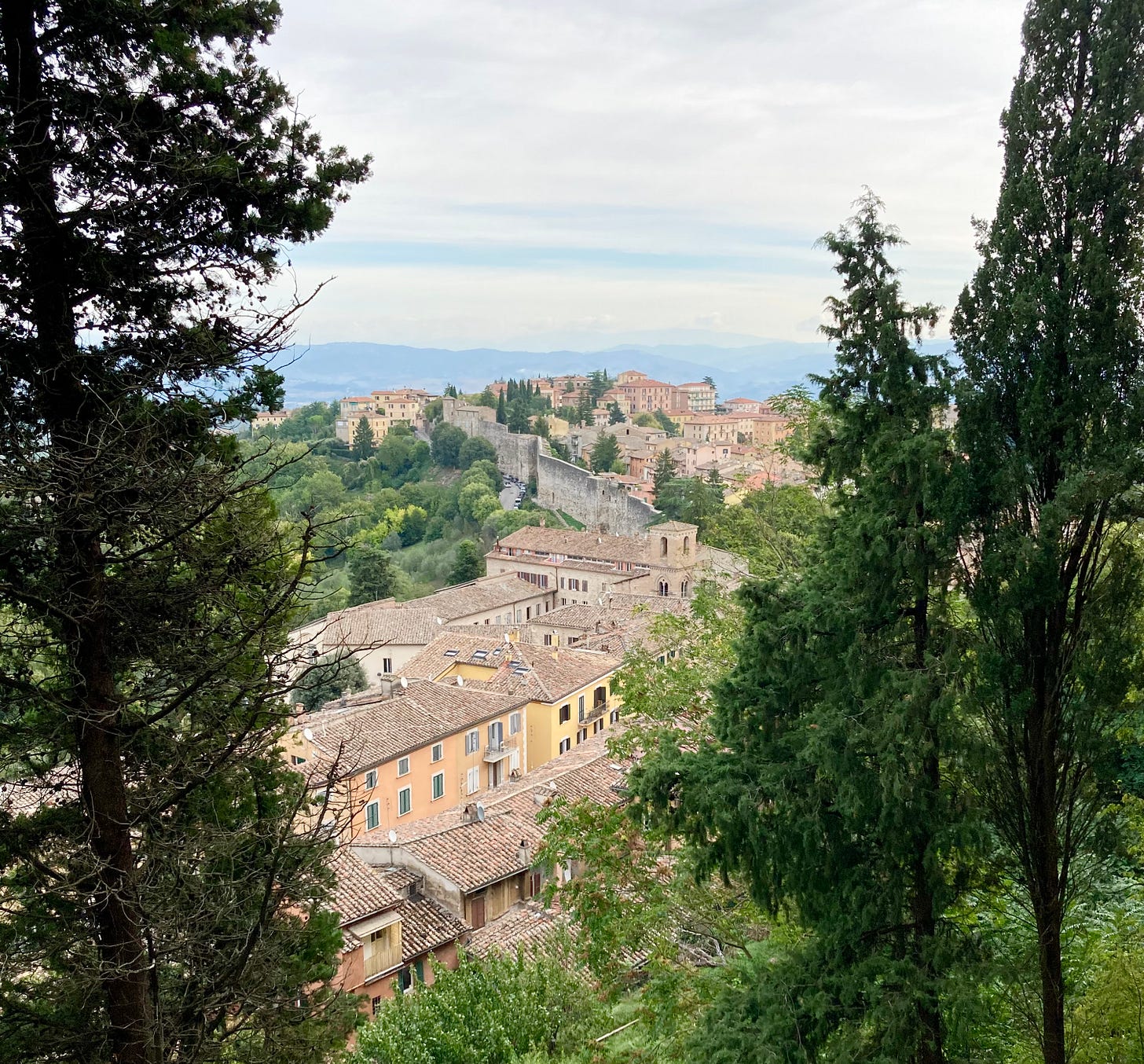Ch-ch-ch-changes (hat tip to David Bowie)
For immigrants, change is a certainty. What’s not at all certain is what that means.
In the novel I’ve been writing, I revised the relationship between my protagonist and her heartthrob, which led to a string of trickle-down changes—because that changed relationship meant my protagonist had changed too, which affected all kinds of things. The ending, for example. And because the ending had changed, even though slightly, I had to look again at the beginning. Because in novels, beginnings and endings are always, always linked, and it’s (usually) not possible to write a story’s true beginning until you know the ending and all its nuances.
Moving to a new country is the opposite of that. Moving to a new country is writing yourself a new beginning, but one you can judge only in the moment, step by step, because whatever ending you’re moving toward is unknown. You might think you know what to expect, either from research or travel experience, but chances are you’ll encounter lots of surprises, both good and bad. Yet there is one thing about immigrating that’s completely knowable—it changes you. Or it should. To survive in a new world, you must adapt. And apparently that topic hit a nerve because last week’s post blew up, with more than 2,800 views to date.
Change is good. I’ve said so for most of my adult life, and I was still saying it when I took the biggest step of my life and moved to Italy. But then, to be an immigrant and be happy, you have to believe that. I’ll go even farther and say change can be restorative, even rejuvenating. And when I look back on the past four years and see all the ways in which I’ve changed, some despite my inclinations and others because of it, I’m grateful for the gift of perspective. That is, of course, one of the big advantages of travel—getting outside of the probably-too-comfortable bubble you live in, your habitual way of seeing things. If you’re an immigrant, faced with new vision and re-vision, multiply that by, oh, a thousand.
If moving to another country doesn’t change you, I’d say you’re merely residing on foreign turf while still living, mentally and emotionally, in your home country. You’re an expat instead of an immigrant. The difference is subtle but significant. The Oxford Dictionary defines an expat as “a person who lives outside their native country,” whereas an immigrant is “a person who comes to live permanently in a foreign country.” One word that makes all the difference: permanently. Because if you believe you’ve immigrated—that is, you see Italy or wherever as your forever home—then you must be open to change. You must be open to becoming a part of your community instead of an observer, a passerby.
But, you say (and I hear the frustration in your voice), how can I, as an immigrant, find that community, the right community? Granted, it’s not easy to choose where to live when Italy offers so much. I see it all the time in expat groups—people post about wanting to live near the sea or the mountains. They want a small, charming town with access to a big city (near the sea and/or the mountains). They want everyday beauty and la dolce vita (near the sea and/or the mountains). They want a big city + charm + everyday beauty and la dolce vita (near the sea and/or the mountains). Well, to quote a lyric from “Dance: Ten, Looks: Three” in A Chorus Line, “that ain’t it, kid.” Okay, it’s part of it. But it’s not everything. And there are two aspects to this question: where you choose to live (region, province, city/town), and within that town or city, where specifically. Which neighborhood? And does it matter? Yes. Yes, it does.
Today, let’s talk about the bigger where: city or town. The mistake some people make in choosing where to settle in Italy is that they’re hamstrung by their tourist perspective. Or they dream of living in their family’s ancestral town (which may indeed turn out to be dreamy—or nightmarish.) They’re looking at what they want instead of what they need. Or they know what they need but do a bit (or a lot) of rationalizing to justify choosing a place that doesn’t meet those needs. Or they know what they need but fail to do a deep dive into what that translates into in terms of daily life. Let’s look at a case study: me.
Pre-move to Italy, I had some basic parameters: I was not going to choose one of my family’s ancestral towns in Lombardia, Lazio, and Campania for the perhaps silly, certainly emotional, reason of not wanting to “take sides” and the practical reasons of size and/or location. Besides, I wanted to avoid the north’s snowy winters and the south’s brutal summers. (Guess what! Nowadays the brutal summers are pretty much everywhere. Thanks for nothing, climate change.) That left the central regions. So narrowing it down: after 30-plus years in the San Francisco Bay Area, I wanted to be somewhat near the ocean. I wanted easy access to the abundant art in Florence. I wanted a relatively small town but a lively one, with great architecture and a healthy appreciation for the arts. A place where I wouldn’t hear English at every turn.
I chose Lucca, a city about an hour and a half west of Florence that I’d visited and loved. It ticked every one of my boxes, or so I thought. Instead, it was the wrong choice for me. I was looking at it through the eyes of an off-season visitor. I didn’t do my homework. I let Lucca romance me.
Now, before anyone gets mad and accuses me of Lucca-bashing, I’m not. It’s an architecturally stunning city with a rich musical history. It comes up frequently as a great place to live, via both websites and word of mouth, and for many people it is. My friends love it there. I’m not saying you shouldn’t move to Lucca—unless, of course, you’re like me.
Word on the street is that Lucca is a great dog town, and I took that to heart without further thought. It has a magnificent Renaissance-era wall topped by a park, and I couldn’t wait to walk Aria there. And at first our walks were as delightful as I’d imagined—but 365 days a year? I simply cannot walk the same route every day without becoming homicidal, and Aria loves nothing more than exploring new places. But if you live in Lucca’s historic center and don’t have a car, there’s really nowhere else except that wall. Now hold on a minute, you say, what about the those charming city streets and the expanses of grass outside the wall? And there’s the rest of Lucca, the non-historic-center part. Right? Right. Except those treeless grassy areas are an absolute inferno in summer. (An inferno you must pass through to reach the periphery of Lucca and the cool respite of the river a 30-minute walk distant—for Aria, impossible without becoming too overheated.) Dogs aren’t supposed to be off leash there, nor on the wall, a hardship for those of the need-to-run variety. (PSA: if you’re tempted to break the rules, do it on those grassy flats; it’s a 30-foot drop from the ramparts, and yes, dogs have fallen to their deaths.) Then there are the bikes. Lucca swarms with them (tourists love to careen around on those canopied quad bikes), and Aria was constantly terrified by them. So while Lucca is a great “dog city” in that it welcomes dogs, it was not a great city for my dog.
Speaking of an inferno, that’s what Lucca’s historic center becomes in summer. Maybe the intact walls hold in the heat, I don’t know; in any case, it was hot, steamy, blistering, suffocating. And buggy. And that’s another part of my homework I didn’t do. If I had, I’d have known that Lucca is built in a low-lying area that used to be prime malaria territory, near that river I mentioned. Biting insects love it there and biting insects love me. I am, for mosquitos, no-see-ums, and whatever else the skies unleash, the human version of Hemingway’s moveable feast. For three of the four months I lived in Lucca I was covered in bites (and yes, I tried all kinds of remedies, slept under a mosquito net, and so on). I went to the movies once (at a theater I later learned had to be fumigated periodically) and came out with polka-dot legs. In short, I was a sweaty, itchy mess.
Next up: size. Lucca, population roughly 89,000, feels really small to me, and I should have realized that would wear on me. (Enter denial.) And it’s far more touristy than I realized. In a tourist town, an American accent usually means the locals trot out their English, which is what happened to me with maddening frequency—even when I spoke my low-intermediate-ish-level Italian to them, told them I lived there, and asked them to speak Italian. To be fair, things might have improved if I’d stayed and people got to know me. But newly arrived in Italy and eager to advance my language skills, I found it disheartening to hear English at nearly every turn.
So what did I do? I moved. (And here we are, back to the topic of change and the need to embrace it.) Where did I go? Inland to Perugia, a hilltop city bigger than Lucca, vibrant with the energy of thousands of university students, with far fewer bugs of the biting variety and with panoramic views that give me a sense of peace. A city geographically more distant from Florence but with better train service, and with the bonus of nearly equal proximity to Rome. A city with five parks I visit regularly (there are more) and miles and miles of streets to explore. True, I live in the only landlocked region on the peninsula portion of Italy, but I’m 30 minutes from a large lake and only two or three hours from the coast. True, it gets very hot here, but, fortunately, there’s usually a breeze (which, unfortunately, mutates into a brutal wind in winter). It’s a city in which I can go days without hearing a word of English, and when I do, those words are usually spoken by tourists or students studying abroad. It’s a city where I feel at home. Where I found a home.
More on that next week.
Comments? Thoughts? I’d love to hear from you.
Book of the week:
The Italians by John Hooper
Poem of the week:
“Change” by Kathleen Jessie Raine







When she was a student, one fine day she was crossing the square in front of the duomo at the same time a young Italian man was crossing from another direction. She accosted him, suggested a coffee and conversation. Not long after, a wedding in Corciano, followed by a 5 year stint in Vancouver, Canada, from whence we came, where they bore us two grandchildren. The moved back to the Gualdo area and "forced" us to uproot ourselves. Who says septuagenarians are too old for such an upheaval. It's tonic for the soul.
Good piece, Cheryl. My wife and I were lucky to find Perugia many years ago because our daughter attended the Universita per Stranieri and later the Universita di Perugia. When we moved here last year (a year ago tomorrow), on a permanent basis, we settled in a rural area south of Gualdo Tadino, a small town on the eastern edge of Umbria. Suits us fine. One of the things I realized after reading your article is that we are immigrants and not expats in the sense of the words you use. I have, however, been referring to myself as an expat. Not now. Immigrant it is. And yes, I am changed and changing.